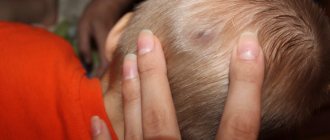Auditory hallucinations affect not only our contemporaries living in harsh stressful conditions. This phenomenon has been familiar to people since ancient times. It used to be believed that a person who hears voices in their head has incredible intuition and prophetic abilities. Even now, some parapsychologists adhere to the same opinion, but today there is not a single scientific proof of this theory. But mental and nervous disorders, which almost always deal with different types of hallucinations, are precisely related to the problem.
What sounds in your head?
Voice hallucinations are always a pathology, no matter what the cause. The patient is able to hear sounds of a wide variety of nature:
- verbal type - stories, threats, calls, warnings, memories, singing, obscene screams, whistling, breathing (they can be reproduced either in a single voice or in a whole choir).
- non-verbal type - clicks, sounds of kisses, rumbles, alarms, music, clinking of dishes and more (such sounds have different volumes and saturation).
Before treating a phenomenon, it is necessary to accurately identify its cause and make a clinical analysis of the content of all internal sounds. What might sound in your head?
| Mental disorders | In particular, these are depressive, manic psychoses, Alzheimer's disease and paranoid schizophrenia, in which 70% of patients have dialogues and monologues in their heads. It often seems to a schizophrenic that some kind of heavenly blessing has descended on him, and it dictates to him what to do and what to say. No matter how a schizophrenic behaves, he is always potentially dangerous. And if today his loved ones are touched by the way he talks about the angelic voice inside his head, then tomorrow the same voice can give him the command to jump out of the window, kill, beat, break, go to another city. It is not worth even mentioning that mental disorders require mandatory treatment. |
| Severe depression | Patients suffering from major depression often hear voices in their heads when falling asleep, calling their name. This may indicate that depressive psychosis is developing and urgent help is needed. |
| Side effects of certain medications | Some VSDs and neurotics, depressive patients who have never experienced vocal hallucinations before may experience this phenomenon during treatment with psychotropic drugs. Often the symptom occurs when the patient is in a relaxed state. There are cases when, in the first week of antidepressant therapy, the patient began to hear voices in his head before going to bed: the heart-rending scream of a woman, the sound of gunfire, calling his name. Such phenomena, as a rule, are organically safe, but can greatly undermine a person’s psychological state and force him to refuse treatment. |
| Neurosis, nervous fatigue | When the nervous system is in an “inflamed state,” surrounding sounds can be distorted beyond recognition. Also, a person may suddenly begin to hear his own thoughts as if someone inside was speaking them out loud. The haunting motif of the song can sound quietly as in real mode. If at the same time a person also suffers from insomnia and does not follow a sleep and rest schedule, he can switch off (fall asleep) for 1-2 seconds right on the move. In this case, sound signals or voices often appear that are part of the dream that has begun. The patient, not realizing that he was sleeping during these seconds, worries about auditory illusions, not knowing what to associate them with. Sometimes, to eliminate this phenomenon, just getting a good night's sleep is enough. |
We recommend reading: What causes dry mouth?
Even if a person is completely healthy, voice syndrome in the head shows that his psyche is in a shattered state and will probably soon turn into illness.
Science, not exorcists, can get rid of voices in your head
Neuroscientists from St. Jude Children's Research Hospital (USA) have found that patients can be relieved of “voices in the head” using small RNA molecules (microRNA) contained in a specific area of the brain. Scientists presented their findings in an article published in the journal Nature Medicine.
Schizophrenia is a serious mental disorder in which the human personality disintegrates and intelligence decreases. The thoughts of patients often turn into delirium; it seems to them that someone is watching them, and ordinary everyday problems are seen as complex conspiracy theories.
One of the most frightening symptoms is auditory hallucinations, which are characteristic not only of this disorder, but also of many others. It seems to the patient that someone is talking to him, and the voice is coming from his own head. He can simply comment on a person’s actions or encourage him to do bad things.
Despite the beliefs of some people who believe that these voices belong to supernatural forces, and exorcism rituals will help get rid of them, schizophrenia and its symptoms are just the result of a malfunction of the brain. According to some researchers, the mysterious voice that a sick person hears is actually his own thoughts, although it seems to the patient that these thoughts do not belong to him.
The reason for this phenomenon may be a malfunction in the activity of neural connections, for example, the connections of nerve fibers connecting the thalamus with the auditory zone of the cerebral cortex. It is this disorder that is associated with auditory hallucinations. As scientists have shown in mice, the circuit malfunctions due to the 22q11DS mutation.
As a result, DiGeorge syndrome develops, a rare congenital disease in which the development of the thymus gland is disrupted and immune system dysfunction occurs due to a sharp decrease in the T-lymphocyte population. In 23-43 percent of cases, this mutation leads to the development of schizophrenia, accompanied by auditory hallucinations. This symptom can be relieved by taking antipsychotic medications.
However, the problem is that antipsychotic drugs that act on dopamine production cause serious side effects.
One of them is neuroleptic malignant syndrome, muscle rigidity, fever (hyperthermia) and mental disorders. Complications can affect various organ systems and even lead to death.
Thalamus. Photo: Wikipedia
How can you cure a person of “voices in the head” without the risks associated with antipsychotics? In their research, scientists analyzed the case of auditory hallucinations in a mouse model, although the animals themselves do not suffer from such a disorder. The researchers used mice with the 22q11DS mutation.
In these animals, the long arm of chromosome 22 lacks a central section of DNA. In this case, the body is deprived of the Dgcr8 gene. It has been shown that its absence in patients with DiGeorge syndrome leads to disruption of signal transmission from the thalamus to the auditory zone of the cerebral cortex.
Normally functioning Dgcr8 ensures the synthesis of specific microRNAs - small non-coding RNA molecules (18-25 nucleotides in length). Compounds belonging to this class suppress the activity of a specific gene.
If the Dgcr8 gene becomes inactive as a result of mutation, microRNAs cease to be formed. As a result, the expression of the gene responsible for the synthesis of a protein called the dopamine D2 receptor is not suppressed.
Dopamine receptors are proteins found in the membrane of neurons. The neurotransmitter dopamine binds to them, which is released by neurons into the synaptic cleft. The D2 receptor, after contact with dopamine, participates in reactions with other molecules, regulating various processes in the human nervous system. Its excess, as well as its deficiency, leads to serious diseases.
So, if the dopamine D2 receptor accumulates in the thalamus, then the neural circuit begins to behave incorrectly. For example, insufficient prepulse inhibition (PPI) occurs. In this case, there is no decrease in the body’s motor response to a strong sharp stimulus in the presence of a weak preliminary stimulus (prepulse).
In other words, a person cannot be prepared for a strong stimulus (for example, a sharp loud sound) if he is first exposed to a weak one.
Insufficient PPI is observed in schizophrenia, panic disorder and schizotypal personality disorder.
John Nash was a mathematician and economist who suffered from schizophrenia and auditory hallucinations. Photo: Elke Wetzig / Wikipedia
Scientists were able to confirm the connection between disturbances in the neural circuits associated with auditory hallucinations and a lack of a special type of microRNA - miR-338-3p. The researchers microinjected these molecules into the neurons of the thalamus, resulting in the restoration of normal activity in neuronal fibers between the thalamus and the auditory cortex.
An insufficient amount of miR-338-3p in patients with schizophrenia causes an increase in the concentration of the transmitter in the neurons of the auditory part of the thalamus.
It has been established that increasing the level of microRNA restores the normal functioning of the neural circuit by reducing the production of the dopamine D2 receptor. According to the researchers, miR-338-3p could in the future become the basis for a new class of antipsychotic drugs that act more specifically and with fewer side effects.
Those suffering from auditory hallucinations could be saved through science rather than exorcism.
Interesting facts about voices
Experts who have studied voices in the head have come to interesting conclusions:
- Psychological traumas of childhood most often become the cause of any form of auditory hallucinations: from schizophrenic to neurotic. At the same time, it always seems to a person that the voices carry evil, negativity, and that they are endowed with enormous power and authority (association with adult offenders).
- People with an inferiority complex always have an extremely negative attitude towards auditory hallucinations.
- Very often a person begins to hear strange sounds after being in a quiet, dark room for a long time.
- There is a special area in the brain that is highly activated during auditory illusions. It's called Broca's area. If the patient does not hear internal voices, Broca's area behaves calmer, and it does not matter whether external sounds are heard or whether the patient himself speaks.
Today in the world there is even a special community of people who hear voices. It encourages its participants to find positive aspects in these sounds and not become depressed.
Vote Recognition Movement
In 1987, Dutch psychiatrist Marius Romm worked with a patient named Patsy Hage who was hearing hostile voices. At first, Romm refused to discuss the content of hallucinations with her - like most psychiatrists, he believed that this would only make them stronger. But Hage insisted that the voices were not just a symptom of the disease, that they meant something. Together, they discovered that the most important voice reminded Hage of her mother. They concluded that the hallucinations were due to a strict upbringing and an inability to express one's emotions. After this, the girl began to recover.
Soon, Romm and Hage conducted a program on Dutch television dedicated to auditory hallucinations.
They believe that voices should not be rejected and suppressed, but listened to, accepted and tried to build friendly relationships with them.
This is very different from the traditional medical model, in which a person who talks to his own voices is the standard nutcase. Despite its almost radical orientation, the movement gained support among many psychologists and psychiatrists around the world. Hearing Voices has chapters in over 35 countries, including the UK, France, Canada and the US.
After her recovery, Eleanor Longden became a psychiatrist herself and a prominent voice activist. She sees her hallucinations not as random symptoms of illness, but as a source of insight into complex emotional problems.










